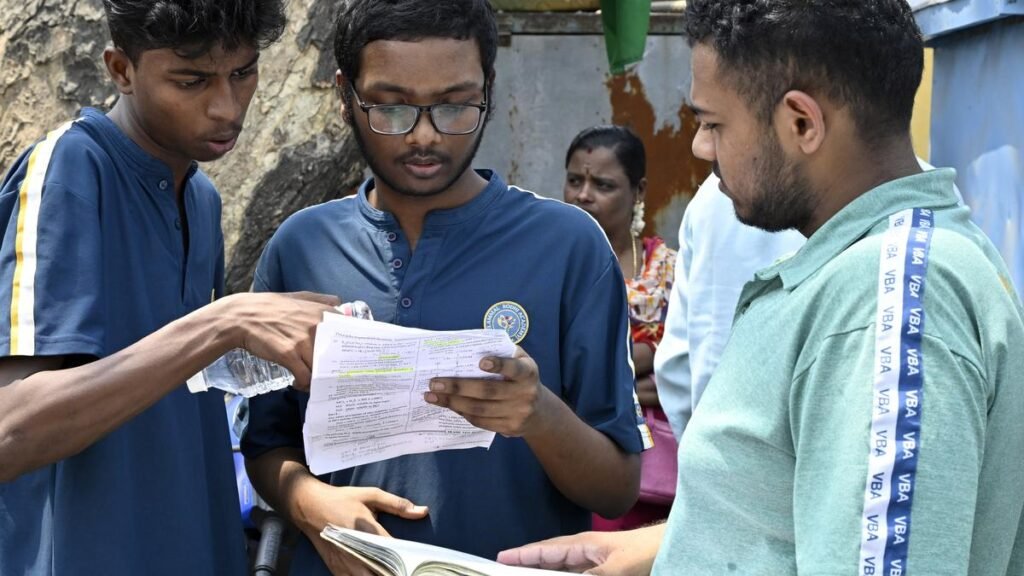

Image used for representational purposes only
| Photo Credit: M. Vedhan
Numbers, often, do not reflect the reality. Masked behind Tamil Nadu’s high gross enrolment ratio (GER) of 52% in higher education are serious deficiencies in curriculum transaction and assessment, as highlighted by a State Planning Commission’s evaluation of university question papers that was released in December 2023.
The report was an indictment of the rot that had set in in Tamil Nadu’s higher education realm. Question papers for semester-end exams for Engineering and Arts and Science subjects barely challenged the students to use analytical or problem-solving methods; rather, they had questions that involved mere recall of concepts, which promoted rote learning. These deficiencies in pedagogical methods directly affected learning outcomes that are reflected by placement performance of institutions.
So, how did the State respond?
After twiddling its fingers for about a year, the government launched a training programme in December 2024 for the faculty of all State universities and government colleges. The revised Bloom’s Taxonomy, a framework to classify learning outcomes based on six cognitive levels — namely remember, understand, apply, analyse, evaluate, and create — forms the core of the training programme. While the first two levels largely pertain to recall of the concepts, the next four levels require higher order thinking and problem solving skills.
Improving quality of education
“In these training programmes, which are conducted in workshop mode, the teachers are being taught to write the course outcomes to align with the larger programme outcomes,” said M.P. Vijayakumar, Vice Chairman, Tamil Nadu State Council for Higher Education (TANSCHE), the agency with the mandate to improve the quality of higher education in the State. “We want to build their capacity to frame analytical and problem-solving questions for evaluating students.” This change, he cautions, needs to be brought in gradually so as not to inconvenience learning.
Giving an example, Mr. Vijayakumar said that for science subjects, investigation, which is a K4-level attribute in revised Bloom’s Taxonomy, can happen essentially in a laboratory, but focus on laboratory curriculum has been lagging.
So far, nearly 2,000 faculty members have been trained in about 20 sessions, but extending the programme to cover all 50,000 faculty members across the State appears a tall order. The Council has already trained 180 master trainers who would then train other faculty members. “We would like to cover as much ground as possible within this academic year,” Mr. Vijayakumar added. Registrars and controllers of examination of all State universities have undergone this training.
At the day-long workshops, the faculty members are given a rundown on Learning Outcome-based Curriculum Framework (LOCF) formulated by the University Grants Commission (UGC) and Outcome-Based Education (OBE) adopted by the All India Council for Technical Education (AICTE). They are then required to write their course outcomes to reflect the final programme outcomes. This is followed by a group discussion and feedback on the outcomes.
As a follow-up to this, the Council plans to audit all question papers of State universities and autonomous colleges on the percentage of questions based on higher order thinking skills once the new form of evaluation is rolled out. It would take a while, years perhaps, to notice any tangible result, but these initial steps need to be taken and pursued doggedly.
Published – July 05, 2025 02:40 pm IST




